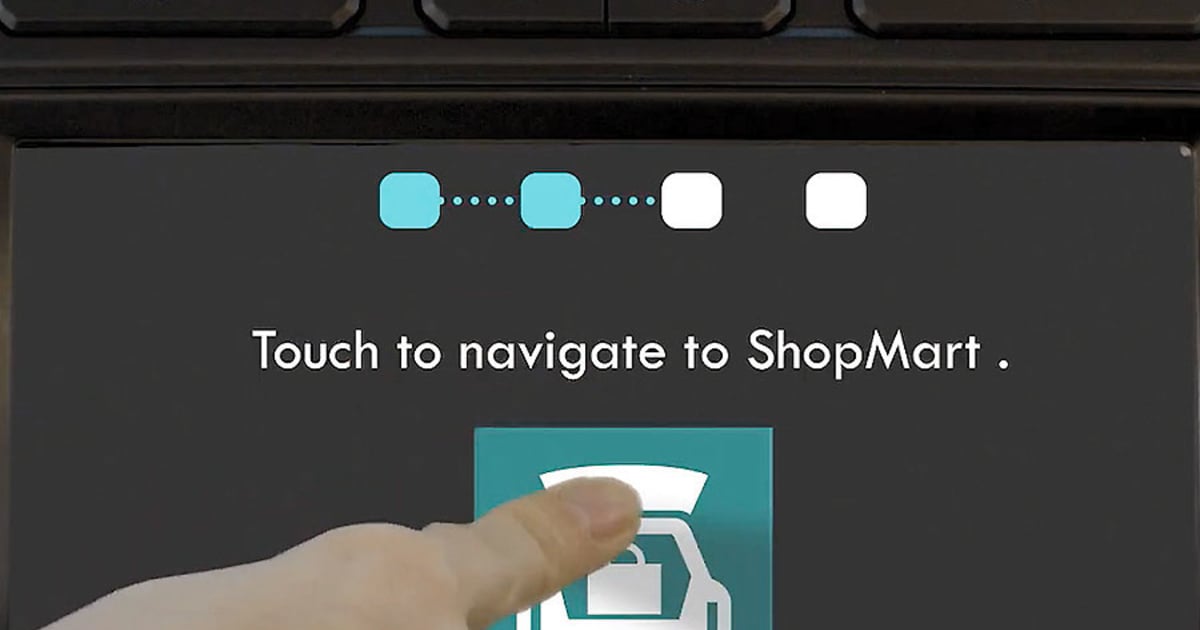
Sheeva.AI is continuing to develop its in-vehicle payment and commerce system by launching two new automotive product offerings.
The Sheeva technology uses precise vehicle location identification to enable a driver to pay for services such as electric vehicle charging, refueling and curbside pickups directly from the car’s infotainment screen, using a digital wallet.
“The good thing about our system is … because [of] it’s awareness, it knows exactly where you are and what you are at that moment in time,” said Evgeny Klochikhin, founder and CEO of the Vienna, Va., startup.
Industry analysts expect in-vehicle commerce to be a growth market. Some applications are already in place. Apple CarPlay, for example, allows vehicle occupants to order Domino’s pizza from the touchscreen.
Sheeva.AI has a pilot in-vehicle commerce program with Stellantis in India, said Mamatha Chamarthi, the automaker’s head of software business and product management — global, Americas and Asia, at the 2022 Plug and Play Pitch Competition. The competition was held in conjunction with the 2022 North American International Auto Show in Detroit.
“We have turned our cars into wallets,” Chamarthi said.
According to a report by Future Market Insights, the global in-vehicle payment system market is projected to reach $12.6 billion in 2032 from $4.2 billion in 2022.
SheevaLocate is one of the new offerings. The patented software application enables the system to accurately pinpoint a vehicle’s location within 6.5 feet. The second, SheevaFence, is the company’s cloud-based platform that enables a proprietary geofencing and mapping system to identify a local point-of-service such as an EV charging station.
Prior to the launch of SheevaLocate and SheevaFence, any automaker that wanted to adopt Sheeva’s technology would have to opt for the entire in-vehicle payment system. Now they can pick the application that best meets their needs.
Sheeva.AI, which started out in 2016 as a parking payment app developer, plans to launch another product in a few months called SheevaConnect. It provides all of the vehicle structure for the in-vehicle payments and the activation of the payment services.
Klochikhin said the company’s new product offerings highlight the benefits of their commerce and payment technology and the ability to tailor it for different automakers.
“This shows our main technology distinction and competitive edge,” he said. “Those are distinguishable product lines, which can be licensed separately if so desired by the customers.”
Sheeva’s technology is adaptable to practically any in-vehicle infotainment platform or automaker’s companion app, Klochikhin said.
Klochikhin said Sheeva’s in-vehicle payment system — which he expects to be adopted in the U.S. by late 2023 or early 2024 — could play a major role in the wider adoption of EVs, given that it makes the charging process more seamless.
“Instead of having six, seven, eight different apps connected to different charging networks, you now have everything integrated within your vehicle,” Klochikhin said.
Sheeva’s technology is also more efficient at locating charging stations, assessing whether those charging stations are available and navigating the driver directly to the location, Klochiklin said.
A global automotive consumer study by Deloitte indicates that making it easier to pay for public charging is pivotal to the overall adoption of electric vehicles.
The consulting firm found that 56 percent of U.S. consumers surveyed prefer paying for EV charging using their credit or debit card. Only 25 percent prefer using a smartphone app. Those who prefer a pre-paid subscription plan was even lower, at 9 percent.
“One of the one of the immutable truths that we know about consumers is that … they’re not willing to compromise on convenience,” said Ryan Robinson, an automotive research leader with Deloitte.